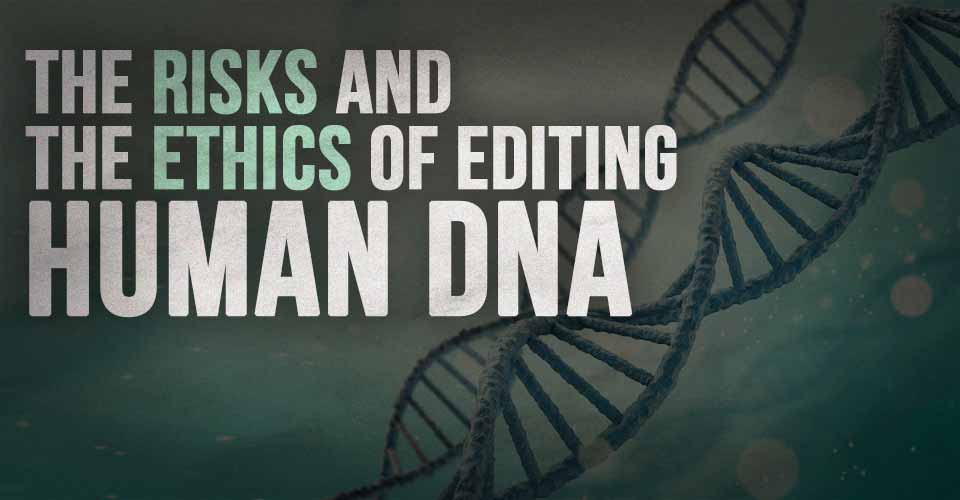
The International Summit on Human Gene Editing convened to ask one major question: How far should scientists be allowed to go when they edit human DNA? Hundred’s of scientist from around the world gathered in Washington, D.C, on December 1-3, 2015, to discuss scientific, medical, ethical, and governance issues associated with recent advances in human gene-editing research. Some say this was a historic meeting to debate one of the most controversial subjects in science today. Almost 500 scientists, doctors, bioethicists, legal experts, historians, patient advocates, and others gathered in this summit sponsored by the U.S. National Academy of Sciences, U.S. National Academy of Medicine and Co-hosted with the Chinese Academy of Sciences and the U.K.’s Royal Society. To debate about ‘How far should scientists go when editing human DNA?’
Nobel laureate David Baltimore of the California Institute of Technology said “We could be on the cusp of a new era in human history,” He further said that “The overriding question is when, if ever, would we want to use gene editing to change human inheritance?”
The main focus of this summit was should scientists be allowed to use powerful new genetic engineering techniques to edit genes in human eggs, sperm or embryos – as this could raise a host of thorny safety and ethical issues. Hundreds of scientists and ethicists from 20 countries who attended the summit believe that the new tools to edit the human genetic code will produce many benefits, such as finding new ways to prevent and treat diseases.
These tools are planned to edit genes inside living cells, to slice and repair or replace specific sections of DNA which allows scientists to make very precise changes in DNA much more easily than ever before. This is much like a biological version of the cut-and-paste feature in a word processing software. For instance, CRISPR-Cas9 is a fast, cheap and powerful new genetic engineering techniques to edit genes in human eggs, sperm or embryos. Scientists believe that these new techniques will help to prevent and treat diseases, including AIDS, cancer and Alzheimer’s.
On the contrary, the ability to edit DNA using these new techniques are raising many fears as mistakes in this gene editing could inadvertently introduce new diseases into the human gene pool and can be passed down to future generations. Though this could help prevent and treat many inherited diseases, including Huntington’s disease, cystic fibrosis, and Tay-Sachs disease. Creating children who are smarter, taller, smarter or have other supposedly desirable traits is also an raising fear.
“I think enhancement will creep in the door in terms of treating serious diseases,” said George Church of Harvard University.
Nobel laureate David Baltimore of the California Institute of Technology said, “We sense that we are close to being able to alter human heredity.”
The laws and guidelines vary widely between different countries about what germline, or hereditary, research is allowed. Some ban any research; some allow only lab research but not pregnancies; some have no policies. In the U.S., the National Institutes of Health won’t fund germline research but private funding is allowed.
What one country attempts “will have consequences in others,” the White House’s John P. Holdren noted.
The organizing committee for the summit issued a statement on human gene-editing research and its potential applications, including uses that could alter the human germline, after three days of debate. “That statement is our answer to the question of whether there should be a ban,” said David Baltimore.
Read: DNA Analysis Deepens the Mystery Surrounding the Paracas Elongated Skulls
Sarah Gray of the American Association of Tissue Banks said, “If you have the skills and the knowledge to fix these diseases, then freaking do it.” Her son suffered before dying of a genetic disorder six days after he was born.
Many scientists said it’s not too early to consider the biggest ethical quandary: Should they be allowed to edit human DNA?

